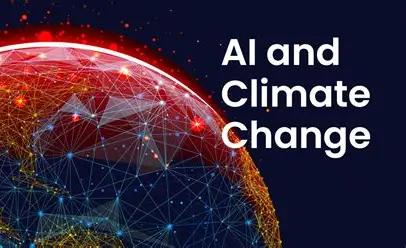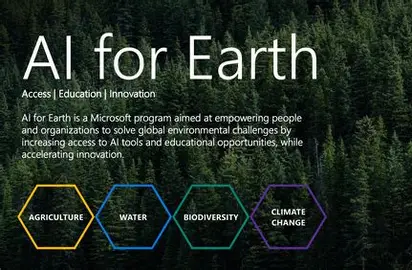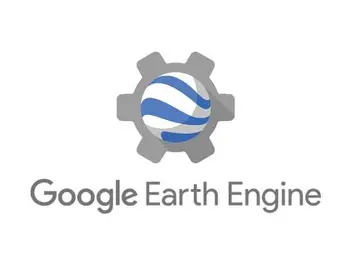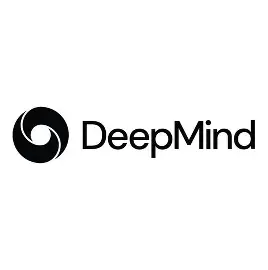Introduction: Why I’m Excited About This:
Honestly, sometimes I feel like climate change is this huge monster we can’t fight. Heatwaves, floods, wildfires—you name it. It’s easy to feel helpless. But here’s a bright spot: AI, or artificial intelligence, is actually helping us deal with it.
You might be thinking, “AI? Isn’t that just robots and tech stuff?” Well, yeah, that’s part of it, but it’s also being used in climate change solutions. AI can look at huge amounts of data, find patterns we humans might miss, and even suggest solutions. It’s like giving the planet a smart assistant that never sleeps.
I wanted to share how AI tools in climate change are helping the planet, especially when it comes to Sustainable Development Goals (SDGs). I’ll also talk about six AI tools that are already making a real difference. Don’t worry—I’ll keep this simple and easy to follow.

AI and Climate Change: Breaking It Down:
So, what exactly is AI doing for climate change? Think of AI like a super-smart helper that can process tons of information and tell us what’s coming next.
Here’s what AI sustainability tools can do:
- Predict extreme weather events like storms, floods, or heatwaves.
- Track pollution, forests, and water resources.
- Help farmers grow crops more efficiently.
- Make energy use in homes, factories, and cities smarter.
Basically, AI turns data into advice. It can say, “Hey, watch out for this flood next week,” or “You’re using too much energy here—try this instead.” That kind of info can save money, resources, and sometimes even lives.
6 AI Tools That Are Actually Making a Difference
1. ClimateAI:
I like to think of ClimateAI as a weather whisperer for farmers.
- It predicts floods, droughts, and heavy rain weeks in advance.
- Helps farmers plan, save crops, and avoid wasting water.
- Supports SDG 2 (Zero Hunger) and SDG 13 (Climate Action).
Imagine planting seeds knowing exactly when it might rain—or when it might not. That’s exactly what this tool does. It’s like giving farmers a superpower.

2. IBM Green Horizon:
This one’s like having an invisible energy and pollution expert.
- Predicts air pollution so cities can act before it gets bad.
- Optimizes renewable energy like solar and wind to make it work better.
With this tool, cities are getting cleaner air and smarter energy use. It’s like giving a city a brain that’s always thinking about the environment.

3. Microsoft AI for Earth:
This tool is all about helping scientists protect the planet.
- Provides AI tools to monitor water, wildlife, and farming.
- Helps protect endangered species and habitats.
- Supports SDG 6 (Clean Water), SDG 12 (Responsible Consumption), and SDG 15 (Life on Land).
It’s kind of like giving researchers a magic pair of binoculars—they can see what’s happening in nature and take action before it’s too late.

4. Google Earth Engine:
Ever wished you could “see” the planet from above? That’s exactly what Google Earth Engine does.
- Uses satellites to track forests, glaciers, and land changes.
- Helps governments and NGOs make decisions based on real data.
It’s almost like having a bird’s-eye view of the Earth. You can see changes as they happen, instead of finding out months later.

5. DeepMind Energy:
Even tech companies can help the planet thanks to DeepMind Energy.
- It predicts how to cool data centers efficiently, cutting energy use by up to 40%.
- Less energy use means fewer carbon emissions, which is a huge win for the environment.
- Supports SDG 7 (Affordable and Clean Energy) and SDG 13 (Climate Action).
What’s really cool is that data centers run 24/7, powering websites, apps, and cloud services we all use every day. That constant energy use adds up fast, so making them smarter has a big impact. Who knew cooling servers could be part of saving the planet? Plus, these energy savings free up resources that can be used for other sustainability projects, making it a win-win all around.

6. Climate TRACE:
This one is all about accountability.
- Uses satellites and AI to track greenhouse gas emissions worldwide.
- Shows which factories or countries are polluting.
It’s like AI is saying, “We see you,” making it harder for anyone to hide pollution. Transparency like this can actually make a big difference.

Why These AI Tools Matter?
You might be wondering, “Cool tools, but do they really matter?” Here’s why they do:
- Better predictions – We can prepare for storms, floods, and heatwaves instead of just reacting.
- Saving resources – AI helps us use energy, water, and materials more wisely.
- Smarter decisions – Farmers, companies, and governments can act faster.
- Global reach – AI can help a small town or a whole country.
- Supports SDGs – Helps achieve goals like clean energy, responsible production, and climate action.
Basically, AI makes fighting climate change not just possible, but practical.
Looking Ahead: The Future of AI in Climate Action
The cool thing is, AI isn’t slowing down. Here’s what the future might look like:
- Helping communities adapt to heatwaves, floods, or rising seas.
- Reducing carbon emissions in cities, factories, and transportation.
- Making AI itself energy-efficient, so it doesn’t become part of the problem.
- Smart farming and pollution control using robots and sensors.
Of course, AI isn’t perfect. It takes energy to run, and not every country has the data it needs. But used wisely, it’s one of our best tools to fight climate change.
Conclusion:
Here’s my takeaway: AI isn’t just tech for tech’s sake. It’s helping real people, farmers, cities, and governments protect the planet. Tools like ClimateAI, Google Earth Engine, and Microsoft AI for Earth are already making a difference.
By using AI to fight climate change and achieve SDGs, we can make smarter choices, save resources, and protect the planet for future generations. Even small changes with AI can ripple out to big impacts. And honestly, that’s something to get excited about.
AI gives me hope that even with huge problems like global warming, humans can still act, adapt, and make a real difference.
Connect With US:
X(twitter)| Instagram| Reddit| Quora
or drop us an email to admin@hyperaihub.com or send us your request from Contact us page